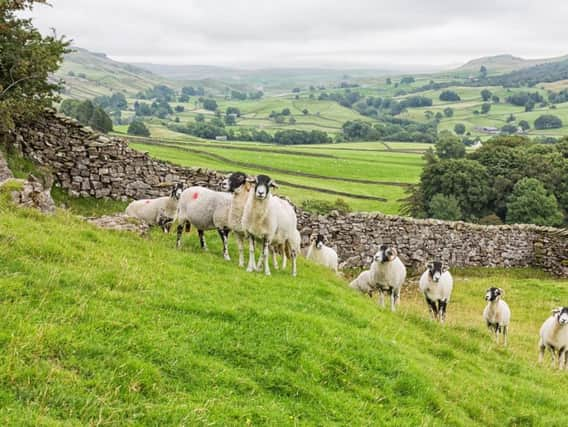UK 'risks further climate breakdown if farmers don't get support they need after Brexit'


The group, chaired by the UK chairman of Barclay’s bank Sir Ian Cheshire, believes that by 2030 the nation must transition to organic farming, integrated pest management, pasture-fed livestock, conservation agriculture and agroforestry, among other “agroecology” farming methods that involve working with and enhancing natural and social systems.
Deforestation, wildlife loss, soil degradation and pollution will otherwise increase and rates of diet-related illness will rocket, the independent RSA Food, Farming and Countryside Commission said following a two-year inquiry.
Advertisement
Hide AdAdvertisement
Hide AdSir Ian, whose commission includes senior figures from across industry, said: “Our planned exit from the EU creates a once-in-50-years opportunity to change our food and farming system, but we need to act now... the climate emergency makes urgent, radical action on the environment essential.”
In its report, the commission claims that many current farming systems have “damaged and depleted our precious and finite resources”.
Most farmers who contributed to the inquiry, which was sponsored by the Esmée Fairbairn Foundation, said they could make major changes to their farms within five to ten years but the commission warned they will be able to do so without “stable” policy, regulation, advice and access to finance and innovation.
To transition to agro-ecological farming in the next decade, the Government is told to stop delaying policy and trade decisions and commit to a transition plan by January 2020.
Advertisement
Hide AdAdvertisement
Hide AdSir Ian said the UK can become the “world-leader” in healthy, sustainable food production by harnessing farming as a force for wider economic, public health and environmental good.
“We offer government our shared vision for a UK food and farming system which changes our countryside and rural economy and puts farmers in the driving seat,” he said.
A major public health challenge makes urgent action imperative, according to the commission’s director Sue Pritchard, who said: “What we eat, and how we produce it, is damaging people and the planet.
“Food, farming and countryside policies are currently too fragmented to progress fast enough and far enough... agriculture policies are disconnected from health policy; environment policy is disconnected from trade policy; social policies are disconnected from industrial strategy.”
Advertisement
Hide AdAdvertisement
Hide AdThe report has attracted cross-party backing from senior politicians.
Green Party leader Caroline Lucas said a historical shift in farming systems is essential for “averting climate breakdown, restoring nature and securing human health, wellbeing and livelihoods”, while David Drew, Labour’s Shadow Minister for Environment, Food and Rural Affairs, said new farming policies must avoid creating “a race towards much larger holdings and industrial-scale farming”.
Lib Dem environment spokesman Alistair Carmichael accused the Government of “kicking the can down the road when faced with crucial decisions about the future of British farming”.
Environment Secretary Michael Gove said: “We know that it is in the interests of farmers and landowners to move to a more sustainable model, which is why our Agriculture Bill sets out a new framework that will reward them for the work they do to protect and enhance the environment.
“The recently launched Food Review, led by Henry Dimbleby, will also look afresh at our food system to ensure everyone has access to high-quality and healthy British food.”